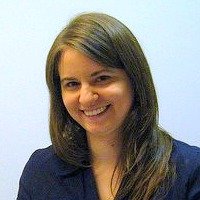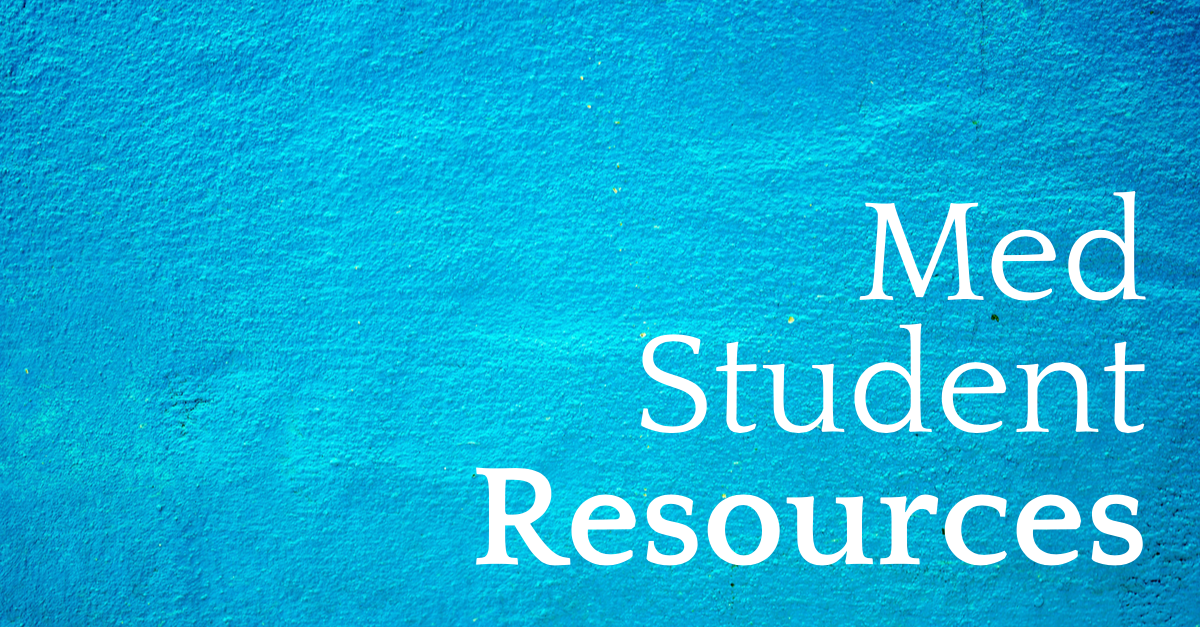Last Updated on June 24, 2022 by Laura Turner
Ms. Carolann Curry is a Library Assistant Professor and the Reference & Outreach Librarian at Mercer University School of Medicine in Macon, Georgia.
 Please summarize your role at the medical school.
Please summarize your role at the medical school.
I assist medical school faculty, staff, and students with research, including providing customized literature searches and one-on-one reference consultations. I am the library liaison to multiple faculty departments, including Family Medicine, Community Medicine, Geriatrics & Palliative Medicine, and Medical Education. I am also the library liaison to the Medical Doctor, Master of Science in Biomedical Science, and Master of Science in Preclinical Science programs. In addition to reference responsibilities, I teach classes to medical students, faculty, and residents. Librarians at Mercer University School of Medicine have a faculty designation, so we are able to serve on committees, which allows us to provide additional institutional support to the school. For example this year I am serving on the Research Committee and am co-chairing the annual joint research conference.
How common is your position at medical schools, i.e. is it a traditional position or a newly developed one?
Librarians are common at medical schools. The librarian positions and library involvement within the curriculum vary from institution, but there will generally always be at least one reference and instruction librarian on staff.
What was your path to your current role?
I received my Bachelor of Arts, double-majoring in English and Mass Communication (Public Relations/Journalism track) in 2006. I took my first library staff position shortly after, working as the Head of Circulation for a small (but bustling!) public library. I missed the higher education environment and eventually applied to Mercer University School of Medicine where I was hired as a Library Assistant. While working as a library assistant, I enrolled full-time in a Master of Library and Information Science program. I graduated two and a half years later with my MLIS, and shortly after my job was restructured into a full-time librarian position. My title has evolved during my 9 years here as a librarian, from technical roles (interlibrary loan and document delivery) to now being more reference and teaching-focused.
Why did you choose to work at a medical school?
I was honestly intimidated when I first took a job at a medical school! I have a liberal arts background, and much of my family works in liberal arts, so medicine was an unfamiliar area for me. I have always wanted to work in higher education, so working at a college or university was my ultimate goal. What interested me most about a medical school was working with students and faculty and being involved in the research process.
Are there unique challenges to your role at a medical school?
Currently I think a medical librarian’s biggest challenge is demonstrating their value to the institution. The idea of a library as a quiet, brick-and-mortar space filled with books is an outdated concept as we have expanded our resources to an electronic collection, including e-books, e-journals, specialized databases, and mobile apps. For medical libraries to be relevant in the future, librarians have to be innovative, accommodating to the needs of the school, and proactive rather than reactive.
Is there anything that surprised you about working at a medical school?
I was most surprised at just how hard the medical students work. They do not get much time off and have an incredible amount of reading to do. Their resilience and dedication is impressive.
Has your view of your work changed since you began working with medical students?
The academic library field largely operates on an instruction model. When students need help with a research topic or locating information, typically librarians use the opportunity to turn the situation into a teachable moment. For health sciences librarians, we have a somewhat different approach. While we do offer formal instruction to medical students on how to search the medical literature, librarians also conduct mediated searches for students quite often. My view of work has changed in that when a student approaches me with a reference request, I don’t necessarily resort to teaching the student how to use a resource or locate information. Instead I take each reference encounter on a case-by-case basis. For example, a fourth year medical student on an Internal Medicine rotation and working with an attending to publish an article doesn’t need (or have time) for me to walk them through how to search PubMed; rather they want to see what search results I retrieve and they can take the time sorting through which ones are relevant or not.
Please describe a typical day in your shoes.
I spend much of my day corresponding with faculty and students through email. I fulfill daily literature search and document delivery requests and also provide reference services to drop-in/call-in patrons throughout the day. Depending on the time of year, I may also be working on course materials, as I am responsible for teaching activities, including classes for medical and graduate students, orientations for residents, and faculty development sessions.
What is your favorite part of your job?
Without a doubt, my favorite part is interacting with students. I meet students during their first week on campus at orientation when they are anxious and optimistic. It is an amazing process to see them work so hard, to have low points where they are overwhelmed but then to see them grow into confident and capable professionals.
What is the hardest part of your job?
I am naturally reserved (which I guess sounds stereotypical for a librarian!). The most difficult thing for me personally is outreaching to the students and faculty. For libraries today to be successful, we need to be engaged with our patrons and aware their needs. This means that librarians must get out from behind the desk and be visible, active members in the school and community. Liaising with faculty, reaching out to student groups, and speaking up at committee meetings are all things that don’t come naturally for me, but I am dedicated to the mission of the school and serving the academic community, so I make continuous efforts to push myself and be more outgoing.
Is there any general advice you typically give medical students?
The library is your friend! Form a relationship with librarians and library staff early on, and don’t hesitate to reach out if you’re in need of something. This can be said of libraries throughout a medical student’s career. Whether you are away completing clerkship rotations in your 3rd and 4th years, working in your residency, or practicing as a physician at a hospital, you will most likely have access to a library, so don’t overlook them.
Can you share any especially memorable experiences you have had serving in your position?
It’s always rewarding when faculty or students that I’ve helped with a research topic tell me they were published. Oftentimes after a reference encounter, I don’t know what exactly becomes of the research, but when a faculty member or student takes the time to inform me of their publication, I really appreciate it.
Ask any doctor, in any specialty and of any age, and they will remember their training in medical school. It is full of learning, new experiences, new friends, and major strides in both personal and professional development. With so many changes, dozens of obstacles in each student’s life must be confronted and overcome. Fortunately, medical schools have extraordinary people who devote their time and talent to guiding and supporting medical students through their four years. This column interviews these people at medical schools around the country to help students learn more about the resources they have available during their years in school.
